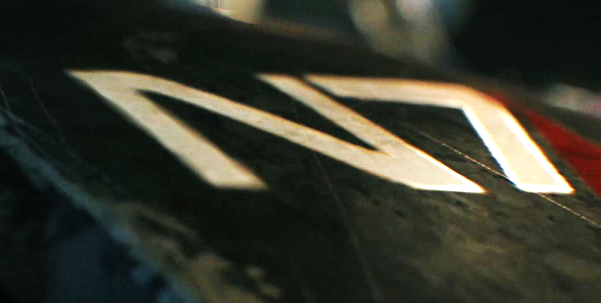 |
| Hawkeye, Captain American, and the Black Widow in Joss Whedon's Avengers. Zade Rosenthal/Walt Disney Pictures. |
Actually, Scott's snarky review was probably meaner to the film's fans that it was to the movie itself. Writes Scott,
this movie revels in the individuality of its mighty, mythical characters, pinpointing insecurities that are amplified by superhuman power and catching sparks that fly when big, rough-edged egos (and alter egos) collide. The best scenes are not the overblown, skull-assaulting action sequences — which add remarkably little that will be fresh or surprising to devotees of the Transformers franchise — but the moments in between, when the assembled heroes have the opportunity to brag, banter, flirt and bicker.
So, there is a not-flattering comparison to Transformers, though this isn't as nasty as it might first seem - if Transformers did anything competently, if not creatively, it was show things exploding. But there is a certain nastiness in the review, and it's aimed squarely at the fans. For instance:
the true guiding spirit of their movie is Loki, who promises to set the human race free from freedom and who can be counted on for a big show wherever he goes. In Germany he compels a crowd to kneel before him in mute, terrified awe, and “The Avengers,” which recently opened there to huge box office returns, expects a similarly submissive audience here at home. The price of entertainment is obedience.
Yikes. It's not terribly surprising, then, that Scott was flamed over Twitter by fanboys with demands that he be fired. (Having not read them, I can't be certain whether these were people who were responding to ostensible insult of the film or the more real insult to themselves. If it's the former, that's an unfortunate irony, because it proves that Scott's joke, above, isn't just a joke.)
Anyway, I bring this up now, and call it newly relevant, because the insecurity that those fans appear to be speaking from is a lot like the insecurity of hardcore gamers. There's a reason, after all, that fans of Marvel comics, in particular, are called Marvel Zombies. (I doubt that Scott knew this. And, yet, he clearly knew it.)
 |
| Painting for the Marvel Zombies comic book, by Arthur Suydam. Yes, the title is a joke. But everyone loves zombies, so it's win-win. |
In the blog about hardcore gamers, I wrote that
every man is made to feel like they're lacking in some way. But not every man is conscious of that lack. Geeks aren't only conscious of it, but they're often reminded of it. And this is a problem for them because [the game] may be the only access that they have to a sense of masculine adequacy. To take that away, then, is to threaten their very sense of themselves as men.
To attack the Avengers film or Avengers fanboys, then, produces a similar effect. But it is also similarly problematic. Because, like most hardcore gamers, fanboys tend to be straight, middle-class white men who enjoy an incredible amount of privilege.
There's an additional layer to the comic book issue, though, one that was recently raised by Freddie deBoer. To pick from the very first line in deBoer's blog, over the past decade fanboys have learned that "our particular geeky obsessions no longer seemed special. Everyone knew about them." That's still not entirely true of gamer culture, I think. I'd wager that few people outside of the gaming community would recognize the N7 insignia that Commander Shepard wears if you slapped it on your coat (in fact, I'm not sure that they would know it has any significance at all); I'm fairly certain that a large minority or small majority of people under 40 would be familiar with Captain American's shield or the X-Men's X.
Because I'm filling this blog with quotes, I'll add another one, this time from Andrew O'Heir at Salon:
at what point is the triumph of comic-book culture sufficient? Those one-time comic-book pariahs are now the dominant force in pop-culture entertainment, and their works are deemed to be not just big but also relevant and important.
The hardcore gamers may feel as if they're under assault by hostile forces, but they remain the gatekeepers of their own online kingdom and firmly in control of their own culture. Not so, for the fanboys, who lost whatever control they once had (if they ever had it) long ago to interests in Hollywood and boardrooms, filled with people who want to diversify and grow the audience, not cater to the base. It's like the fans of the Avengers used to speak a secret language that only they understood, and now everyone and their dad uses it in casual conversation. You might call it "triumph"; one could also plausibly call it "devastating".
O'Heir concludes with the remark that "I think these fans are looking to the stars, for some sort of recognition or respect that simply doesn’t exist, for any of us." But I think that the critical misunderstanding is this - these fans aren't happy with success because they were never looking for and never wanted success. (Kurt Cobain, anyone?) They're defined by the things they appreciate that others never will, and so, in a sense, they're looking for a new defeat to rally around. (As evinced by the response to Scott.) Triumph will never be sufficient, and will never be particularly desirable, because it's difficult to feel special - and it's always been about feeling special, unique, and even superior - when everyone else loves and appreciates the same thing that you do.



1 comment:
I'll link you to another great post on this topic, the hegemony of the entitled pop culture-obsessed man-child...
http://wagthemovie.net/2012/07/19/and-here-we-go-when-batmania-becomes-an-actual-condition/#more-1615
It's like the people at comic boards.com somehow took over popular culture without anyone noticing.
Post a Comment